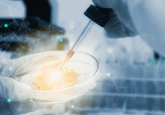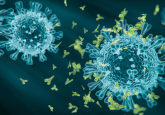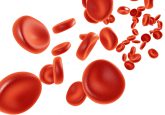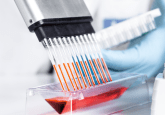Editor’s highlights from the European Bioanalytical Forum 2023
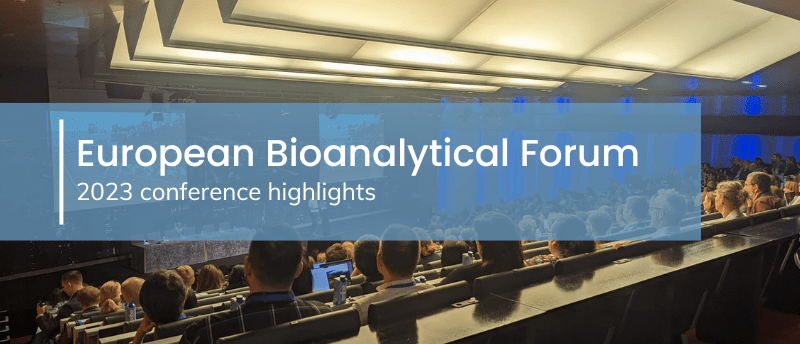
The European Bioanalytical Forum (EBF; Barcelona, Spain) Open Symposium, November 15–17 2023.
The EBF Open Symposium welcomed 75 member companies and scientists from a broad range of bioanalytical disciplines to its 16th annual meeting in Barcelona, with coverage on immunogenicity assessment, biomarkers, hybrid assays, artificial intelligence, industry guidance, laboratory automation, microsampling and more. Below are our Editor’s highlights from the event.
Editor’s highlights from the session
AI, a fuel for the future?
Speaker: Matthew Barfield, Roche (Basel, Switzerland), on behalf of EBF
This session highlighted the ways in which bioanalysts are currently leveraging AI to spur laboratory automation, expedite clinical trial recruitment, optimize sample sizes and create adaptive study designs. AI’s usefulness in data-driven tasks such as report writing, assay development, chromatography verification, etc, was discussed, but Matthew also considered the concerns associated with the implementation of AI and delved into the challenges posed by data privacy, job displacement, perpetuation of biases and data dependence.
A biomarker assay validation approach tailored to the context of use and bioanalytical platform
Speaker: Liz Hickford, UCB-Biopharma (Brussels, Belgium)
Although the majority of the bioanalytical community agrees that a fit-for-purpose validation approach dependent on the context of use (COU) should be applied to biomarker assays, the diversity of biomarker molecules necessitates multiple technology platforms for analysis. Each platform possesses its own advantages and limitations, making fit-for-purpose validation difficult to achieve. Liz shared the framework used by UCB-Biopharma for different biomarker assays to maximize consistency and keep in mind the COU, biological and analytical elements. A key part of the framework involved integrating the bioanalytical lead into the project team early to allow for the COU to be established and understood from the beginning of the project.
Development of a novel hybrid immunoaffinity (IA) LC-MS approach to supplement ADA testing
Speaker: Shivangi Awasthi, Merck & Co., Inc. (Darmstadt, Germany)
As biotherapeutics can elicit an immunogenic response in the form of anti-drug antibodies (ADA), ADA characterization for immunogenicity assessment via LBAs is widely utilized by the bioanalytical community. However, more recently IA LC-MS approaches have been developed as a complimentary tool and Shivangi presented the hybrid IA LC-MS method her team at Merck have developed for isotype ADA IgE. By leveraging the advantages of LC-MS, including multiplexed isotyping, improved drug tolerance and high selectivity, the hybrid method proved to be a valuable asset to supplement ADA testing during biotherapeutic development and safety assessment.
CRISPR and applications of genome editing: bioanalytical strategies & challenges
Speaker: Neil Henderson, AstraZeneca (Cambridge, UK)
The growing space of therapeutic gene editing technologies including CRISPR-Cas9 is helping to facilitate the investigation into molecular pathways involved in disease. In this session, Neil discussed the use of CRISPR-Cas9 in drug development, as well and the challenges associated with method development and their potential bioanalytical solutions. The main message of the session focused around the shift of CRISPR-Cas9 from ‘bench to bedside’ and offering disease treatment via permanent gene editing.
Doing more with less: application of microsampling, LC/MS/MS and MS imaging for the measurement of drug…
Speaker: Ian Wilson, Imperial College London (UK)
A key element of the drug discovery and development process is understanding the fate and effect of a drug candidate on the biological system. Drug candidates are still commonly eliminated in preclinical and early clinical phases due to their toxicity or undesirable DMPK properties. Ian highlighted the potential of microsampling and mass spectrometry techniques for early animal studies to help improve candidate selection.
Enjoyed our Editor’s highlights? You can take a look at our previous conference reports here.
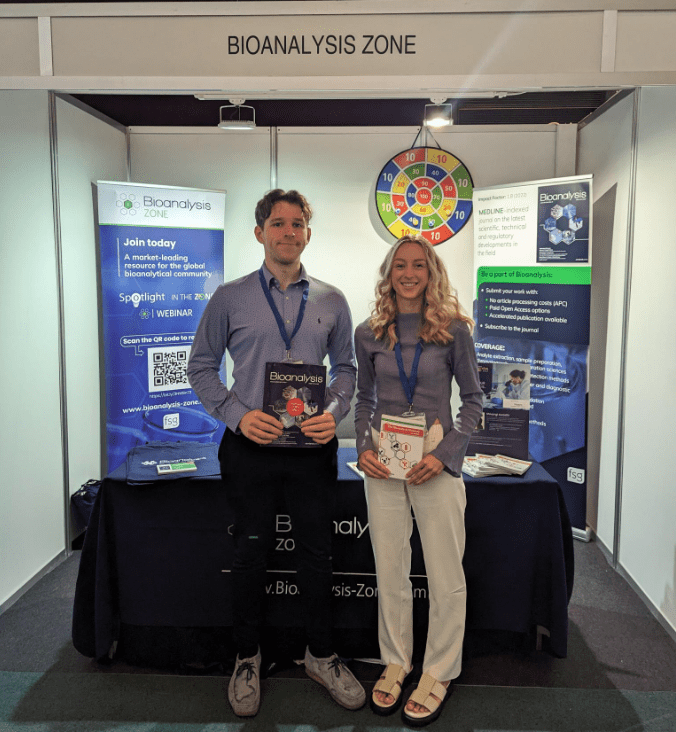
The Bioanalysis Journal and Zone team at EBF 2023: Jack Lodge, Managing Commissioning Editor and Ellen Williams, Digital Editor.

